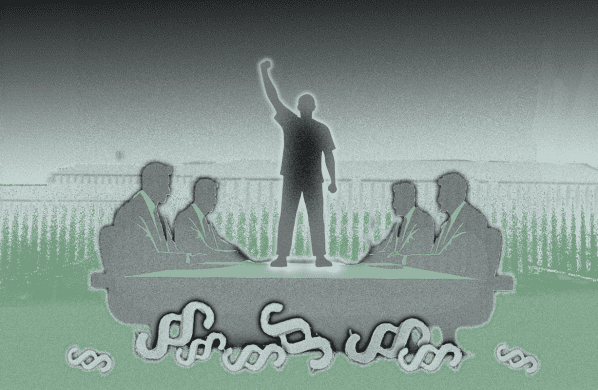As a sign of its commitment to accelerate land reform in Namibia, the government has offered to purchase almost a dozen commercial farms.
Minister of Lands Hifikepunye Pohamba told IRIN on Thursday that
“more than 10 farm owners were invited to make an offer to sell their property to the state” and had been given 14 days to respond to the request.
Pohamba added that the states offer to purchase the commercial properties “should not be seen as an expropriation notice”, as had been reported in the local Republikein newspaper this week.
– It is a bit alarmist to say that we have served these farmers with expropriation notices. As promised, and according to the countrys laws, we have only requested the farmers to sell the property to the state. We have not received any response since the request was made (on Monday), but we do hope that we will reach a compromise. But should any of the farmers refuse to sell, they will be issued expropriation notices, he explained.
The land reform process in Namibia is based on the “willing-seller, willing-buyer” principle, with the government having first option on any commercial farm for sale. Critics of the policy have argued that it has not translated into more blacks owning commercial agricultural land. The government has blamed the arbitrary inflation of land prices and the unavailability of productive land for the slow pace of redistribution.
About 4.000, mostly white, commercial farmers own almost half of Namibias arable land. Since independence in 1990, the government has purchased 118 farms for 105 million US dollar, resettling 37.100 individuals, according to official figures.
Two months ago the farm workers union threatened to invade commercial farms, in what they dubbed as “land sharing and not land grabbing”.
In February Prime Minister Theo-Ben Gurirab said the government would start forcibly taking land from white farmers to give to landless blacks.
– There are about 200.000 Namibians who are in the queue for land. We estimate that we will need about 9 million hectares, and do intend to get this amount of land, Pohamba said.
Following the requests to sell, Namibias farming community was expected to hold an emergency meeting next Tuesday.
– So far we are only aware of three farms that have been approached to sell their properties. The government has acted within the framework of the Commercial Agricultural Lands Reform Act, but we are worried about the criteria being used to determine which farms are approached to sell, said Sakkie Coetzee, executive manager of the Namibia Agriculture Union (NAU).
He noted that among the farmers requested to sell their land, a few had a history of poor labour relations.
Pohamba denied that the government had targeted commercial farm owners who had had labour disputes with their workers.
– The decision to approach certain farmers, and not others, was primarily based on whether or not they had land that would be suitable for resettlement. We also looked at land laying idle and, of course, land owned by absentee landlords. The ill-treatment of farm workers is a worrying issue, but is completely separate from land redistribution, he told IRIN.
Kilde: FN-bureauet IRINnews















